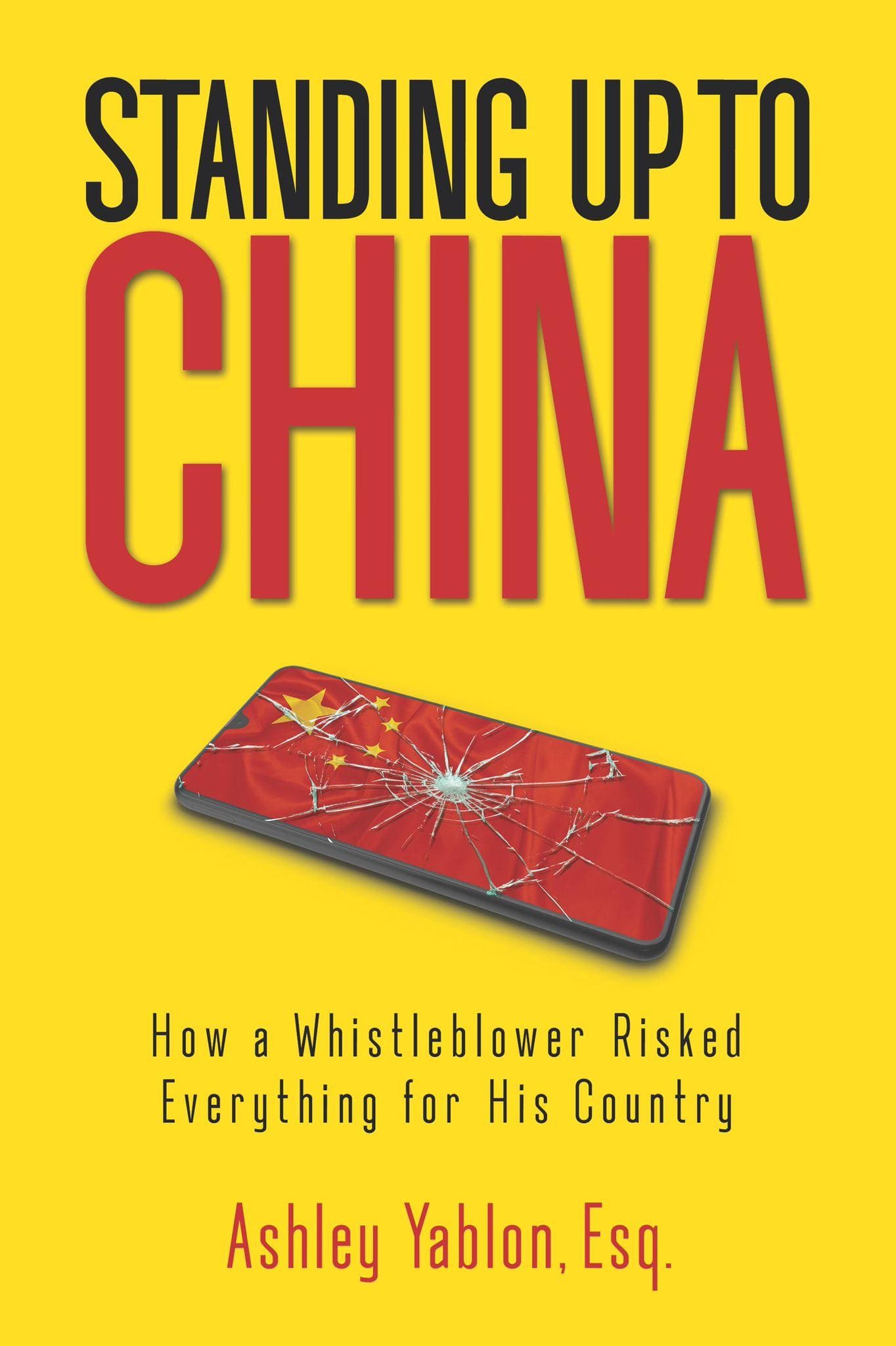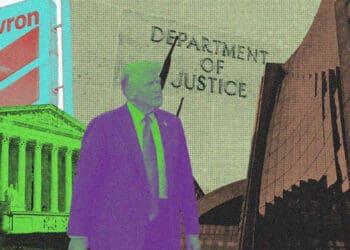Sound governance must encourage those who see something to say something. But that’s easier said than done. In this excerpt from his upcoming book, “Standing Up to China: How a Whistleblower Risked Everything for His Country,” former ZTE general counsel Ashley Yablon shares the fallout of trying to do the right thing. Yablon had served as general counsel to Chinese telecom manufacturer ZTE for just a few months before he learned of the company’s intricate scheme to sell millions of dollars in products to Iran and other sanctioned countries. After coming forward to the FBI, a news website gained access to the affidavit and went live with the news, throwing Yablon into a terrifying, precarious situation.

July 12, 2012
Approximately 4:07 p.m.
Donna and I lie on the floor of our bedroom. Our eyes are riveted to the laptop sitting open before us on the rug. We can’t see or think of anything else. That eleven-inch screen has become our universe.
I’m hitting the Refresh button every five seconds—like a crazed lab monkey trying to score a food pellet from an empty dispenser. The only sound I can hear is my heart pounding in my chest and the methodical clack of the mouse button as my finger hammers it over and over. Clack. Hit Refresh. Clack. Hit Refresh. Clack. Hit Refresh.
About two months earlier, after weeks of agonizing and soul searching with my wife, Donna, I had made the hardest decision of my life. I had decided to turn informer against my multibillion-dollar multinational corporate employer.
Sweat is pouring off my back and running down my sides in rivulets. Not from the Dallas summer heat, which is in full boil. Not from the hot breath of Gable, our hundred-pound Bernese Mountain Dog, hovering over us, [sensing] our anxiety and trying to offer us comfort—but only making it worse.
No, the sweat is from panic. Pure, blind, animal panic. If the story we’re anticipating hits the internet as promised, our lives will never be the same. No more dream job for me. No more career. Maybe no more pulse.
Seriously. Donna and I have been told we could end up dead.
Clack. Hit Refresh…
The site I’m refreshing has promised to break a massive story with global implications. And I’m at the dead center of the story. I’m the whole reason the story exists. And some very powerful people are not going to be happy with me. Not at all. Hit Refresh…
“How did I find myself in such an insane position?” I ask myself for the thousandth time. It was only nine months ago that I took my dream job as General Counsel at ZTE USA, a major subsidiary of one of the largest telecom equipment manufacturers in the world. Only nine months ago that I thought I had the world by the tail. Only nine months ago that Donna and I embarked on what we thought was the most exciting chapter of our lives.
And now it’s all about to come crashing down in spectacular fashion. All because a document was leaked. A confidential document that should have been kept under government seal and should never have seen the light of day.
About two months earlier, after weeks of agonizing and soul searching with my wife, Donna, I had made the hardest decision of my life. I had decided to turn informer against my multibillion-dollar multinational corporate employer, ZTE.
July 6, 2012 (Six Days Earlier)
‘I couldn’t “unknow” what I had come to know.’
I turned left into the parking lot of ZTE USA in Richardson, Texas, feeling jittery and nervous in that waiting-for-the-other-shoe-to-drop way.
Those feelings had become my norm in recent weeks. Ever since that fateful day in May.
As I steered my way toward the massive grey box of a building that ZTE USA called home, panic seized me by the throat. Several of my ZTE USA coworkers were standing around outside the building, confusion on their faces. My pulse began to race. What was going on here?
I eased my foot down on the brake and cruised toward my parking space. Why was everyone milling about outdoors like this? It was after nine. Why weren’t they upstairs working?
I shut off the car, feeling the heat of the day instantly pressing in, and sat still for a moment. Taking several deep breaths, I tried to draw calmness into my body.
About two months earlier, after weeks of agonizing and soul searching with my wife, Donna, I had made the hardest decision of my life. I had decided to turn informer against my multibillion-dollar multinational corporate employer, ZTE. I had taken this dizzying step because I’d discovered that the mega-corporation I was working for was engaged in billions of dollars’ worth of systematic illegal activity, selling US-made components to countries where such trade was banned—Iran in particular.
And now I couldn’t “unknow” what I had come to know.
‘In theory, I had nothing to panic about.’
So on May 2, 2012, I had sat down with two FBI agents. Over two long sessions, I had spilled the billion-dollar beans. I had spelled out exactly how I’d stumbled upon ZTE’s illegal scheme. I had described to the agents, in detail, how a series of shell corporations had been created to disguise the company’s shady activities. I had listed, by name, all the players involved, in both the United States and China. And the FBI had captured my story in a detailed, thirty-two-page affidavit. The purpose of that affidavit, as explained to me, was, among other things, to obtain a warrant for the FBI to conduct an evidence-gathering raid on the U.S. offices of ZTE. And now, it seemed, the day of the raid was here.
In theory, I had nothing to panic about. My affidavit was under seal and was completely confidential. That meant—again, in theory—that no one at ZTE would know it was me who had blown the whistle, at least for the time being.
But we all know how theories sometimes go.
As I walked toward the building, I noticed something that didn’t add up. One of my staffers was laughing with one of the company’s top executives. What was so funny? Then I spotted another incongruity. Many of the people standing around outside did not even work at ZTE. Why would they be standing outside during an FBI raid on ZTE? In fact, now that I thought about it, why would the ZTE people be standing outside? The FBI doesn’t make you vacate the building when they conduct a search, do they? They keep all employees on hand to help them find the documents they’re looking for, right?
I approached a woman in a suit who was taking cell phone pictures of the impromptu gathering. “What’s going on?” I asked her.
“Fire drill,” she said, pointing to the fire marshall’s car parked at the far end of the building.
I laughed. Relief poured over me like an ice-cold Gatorade bath. My paranoid brain had been jumping to conclusions. Today was not The Day. I felt lighter instantly, as if I’d shed a heavy coat. I headed toward the building with a new spring in my step.
My relief lasted about three seconds. Then my cell phone rang. The call was from a New York number I didn’t recognize. I figured it must be related to one of the pending litigation cases I was handling for ZTE. I stepped off the walkway and tapped the accept icon on my phone.
“Hello, this is Ashley,” I announced.
“Mr. Yablon? My name is Mike Smith and I’m employed by Turner Broadcasting.”
“Yes?”
“I work for a website called The Smoking Gun. Perhaps you’ve heard of us.”
“I have.”
“Then you know what we do. Mr. Yablon, I have come into possession of a copy of a thirty-two-page affidavit documenting a conversation you had with the FBI on May second.” “What?” My heart jumped like it was trying to exit my chest. Fear washed over me, erasing all sense of relief. I was sure I’d heard him wrong. I asked him to repeat himself. He did. And then he told me, “I just wanted to inform you that I’m writing an article about the ZTE/Iran scandal, and it’s going to be published next Thursday, along with the complete affidavit. I wondered if you had any comments you would like to add.” “You can’t do that!” I shouted into the phone. “That affidavit was under seal! It’s not public information.”
“I’m afraid that will change come Thursday,” he replied.
‘How could this be happening?’
I ended the call and walked dizzily away from the building, hearing my heart hammering in my chest. This couldn’t be happening. Couldn’t.
I found a semi-private spot between two parked SUVs and hit the number for my criminal attorney, Ted Masters. (Yes, I now had a criminal attorney, as well as four other specialized lawyers, on my personal payroll—something I never could have imagined a few months earlier.) Waiting for Ted to answer, I nervously paced back and forth.
“Ted!” I shouted the moment he picked up. “What the fuck is going on?” “Take it easy, Ashley,” he replied in his reassuring Texas drawl. “Why don’t you tell me what’s got you all riled up.”
With as much calmness as I could muster, I explained the call I had just received.
“How could this be happening?” I said to him. “It’s illegal for anyone to have possession of a sealed affidavit, right? So that means it’s illegal for anyone to publish it, right? Can’t we get an injunction?”
My attorney was silent.
“Ted?”
“You’re correct that the press is not allowed to obtain information illegally…”
“But?”
“But… if someone leaks information to a reporter, and the reporter hasn’t done anything illegal to receive it, there’s not a lot that can be done to stop it from getting out. Thanks to a little thing called the First Amendment.”
As an attorney, I knew this in an abstract way, of course, but freedom of the press sure looks different when you’re the one looking down the barrel of its gun.
“You’ve got to fix this, Ted!”
“I’ll get on it right away,” he said. “Just give me a little time to figure things out.” “In the meantime, what am I supposed to do?”
“Your job. Go to work. As usual. Keep quiet. Act normal.”
“ACT NORMAL? HOW THE HELL AM I SUPPOSED TO DO THAT?”
I hung up and paced between the SUVs, my heart still pounding loud enough for me to hear it through the air. I knew who I needed to call next, but I was reluctant to do so. Donna was in Colorado at the moment, helping take care of her sister, who was battling breast cancer, and her three young boys. I knew that situation was extremely taxing on her emotionally. The last thing she needed to hear was bad news from the home front. But there was no keeping this from her.
“Stay calm, Ashley,” she said, as if talking to one of her clients. Donna is a lawyer too. “I’ll be on the next plane home.”
I speed-scan the story—my brain is too scrambled to read it in logical sequence—and see my name over and over again. The article is all about me and my role in uncovering the ZTE Iran scandal. It contains damning new information too, all of it attributed to me.
July 12 Again
Approximately 5:14 p.m.
Now here we lie on our bedroom floor, drenched in sweat, watching that damn laptop like cats watching a mouse-hole, our hundred-pound dog’s body-heat turning the room into a sauna.
Clack. Hit Refresh…
Still nothing on the website. It’s after five o’clock. Maybe The Smoking Gun has gone home. Maybe the story is not going to be published today.
Clack. Hit Refresh…
What are we going to do if and when the story does hit? What’s our next play? Hit Refresh…
Hit Refresh…
Hit Refresh…
Six o’clock. Seven o’clock Eastern Time. They probably won’t release the story now. Too late in the day; they won’t want to miss the news cycle. Maybe we can relax—for today. Hit Refresh….
Uh-oh. This time, on about the four-thousandth click of the mouse button, there is a lag after I hit Refresh. Something new is loading. Oh shit. Oh no.
No, no, no.
Finally the headline splashes across the screen on a bright red, five-alarm background: “FBI Targets Chinese Firm Over Iran Deal.” And right there on the page is my photograph—cropped from a photo of me proposing to Donna on Broadway years earlier. I speed-scan the story—my brain is too scrambled to read it in logical sequence—and see my name over and over again. The article is all about me and my role in uncovering the ZTE Iran scandal. It contains damning new information too, all of it attributed to me.
Donna jumps to her feet, and I do the same. She places her hands on my shoulders, looks me straight in the eye, and says, “Ashley, we have thirty minutes to get out of this house or we’re dead.”
She’s right. Our home address is public knowledge. The press will be here within the hour, but they’re the least of my worries. Others will probably be here sooner. It’s the “others” that scare the shit out of me.
We grab a couple of duffel bags and run frantically through the house, grabbing whatever necessities we can think of—phones, charger cords, laptops, a few changes of clothes, some toiletries. We’re out the door within minutes, along with our confused dog.
“Where the hell do we go now?” says Donna, tensed behind the wheel of our car. “I have no goddamn idea,” I reply. I’m wishing my brain had a Refresh button because right now it is stuck in an endless loop. The only thought that keeps running through my head, over and over, is How the hell did it come to this? How the hell did it come to this? How the hell did it come to this?
Ashley Yablon’s whistleblowing report sparked a 5-year investigation that led to the largest criminal fine in a United States sanctions case, $1.19 billion. Yablon’s book is scheduled for release this month and is available now for pre-order on Amazon.



 Ashley Yablon was formerly general counsel for the Chinese technology company ZTE. Within a couple of years, Yablon learned that ZTE was engaged in an illegal scheme to sell products to Iran and other sanctioned countries. His new book, “Standing Up to China: How a Whistleblower Risked Everything for His Country,” reveals what happened when his whistleblowing became public knowledge. Yablon is a Dallas native who graduated from SMU and Loyola New Orleans.
Ashley Yablon was formerly general counsel for the Chinese technology company ZTE. Within a couple of years, Yablon learned that ZTE was engaged in an illegal scheme to sell products to Iran and other sanctioned countries. His new book, “Standing Up to China: How a Whistleblower Risked Everything for His Country,” reveals what happened when his whistleblowing became public knowledge. Yablon is a Dallas native who graduated from SMU and Loyola New Orleans.










